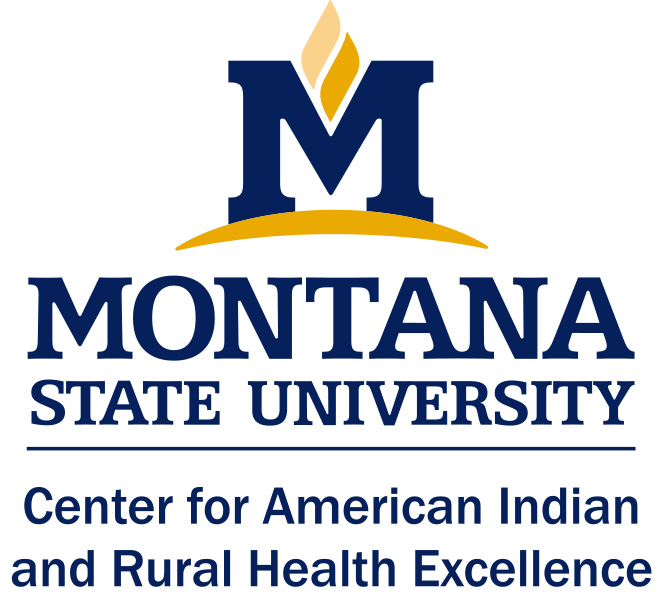Transcript of "Health Impacts of Climate Change"
Transcripts are required for video posted on www.montana.edu. This is the only way to make video or audio content accessible to someone who is deaf and/or blind. This transcript can be converted into Braille, or read by a screen reader.
I became a mom two years ago, and I became passionate about how air quality affects children. Taking more breaths per minute than an adult, their bodies are smaller and so more air particles entering that small body is more toxic. I don't want the burden of poor air quality from our behavior falling on the shoulders of children that are just two years old. Right now I'm a nurse that works at Bozeman Health Deaconess Hospital in Bozeman Montana. I currently work in the emergency department and I also have a passion for how climate change affects human health. As climate change worsens in our future, I think healthcare providers are going to see a lot of change personally on the front lines I think we're already seeing it but how do we connect the health problems that we're seeing with a bigger picture it's just really hard to feel a connection something that's intangible to fix and it's a very powerless feeling sometimes to feel like there's the climate is changing and your health is being challenged by that it's important for patients to feel that power Again by knowing how to make changes within their own home and in their own lifestyle so what we can do is care for providers is teach patients prevention care what to do when it's hot and how to watch that temperature and why that affects them so The Perfect Storm doesn't happen and create a larger crisis if you look at a map of Montana almost the entire state is a health professional shortage area of some sort but there are pharmacies and Pharmacists and a lot of smaller communities that maybe don't have a hospital don't have a big Clinic don't have a lot of health care services so they might be kind of the primary go-to for not only picking up their medication but maybe getting that education pharmacists know their patients who have asthma or some other high risk condition during Wildfire season or the you know the older patient that might be living alone during a heat wave we're trying to use them as that access point for those climate adaptation efforts this is the starting point or the entry point for that to give maybe a tangible action let's get air filters out through pharmacies during Wildfire smoke season and use this as a uh means of a public health response we're so accessible I think a lot of times our clients are having a hard time getting a hold of their doctors and they can just walk into our store or call us on the phone and they're able to talk with us right away my name is Kristen Robbins I'm a pharmacist and owner of Missoula Pharmacy in Missoula Montana and we're a full-service Pharmacy offering conventional medications as well as compounded prescriptions so the project is just trying to get filters to those people in need to their homes especially during our fire season we know our patients pretty well as we're a smaller Pharmacy and so we can get a hold of those clients that we do feel would benefit from it and those are our targeted patients we're hoping it just makes them breathe a little bit easier [Music] when I first started practice in the late 80s I did not think much of wildfires as a significant health issue but more and more we've had to advise patients to avoid the smoke which is very hard to do in addition to heat and air quality from Wildfire smoke other health impacts of climate change include spread of diseases such as Lyme disease and West Nile Virus are spreading further we're also seeing more problems with flooding and the waterborne diseases that can happen after that whether the flooding is from earlier snow melt or extreme rain events which are becoming more frequent drought can be associated with health impact too some of those are mental health impacts because of the effective drought on people's livelihood but it also can lead to decreased air quality from more dust and other particulate matter in the air I think there is a growing awareness among health professionals and in thinking about these issues and there are a lot of people that are pretty hungry to take action providing Pathways connecting with others who are interested engaged talking about these issues thinking about these issues I think can have a real impact [Music] Healthcare professionals have high credibility and are trusted Messengers not only in speaking with our patients but also speaking out in public forums to elected officials to public groups some healthcare professionals are uncomfortable with using the word activism but we are all advocates for our patients all Health Care Professionals need to become advocates to address air pollution and climate change and to work on ways to prepare for it can be uncomfortable for people to speak about climate change with patients especially in conservative areas but most people appreciate it especially when it's presented in a non-judgmental non-political way in our opinion people should be discussing air pollution and climate change Health impacts with patients just the same as we discuss the risks of smoking the most important thing though is to integrate this into the normal things that we discuss with patients all the time until we make climate change a topic of normal conversation it's going to be hard to address for anybody.

